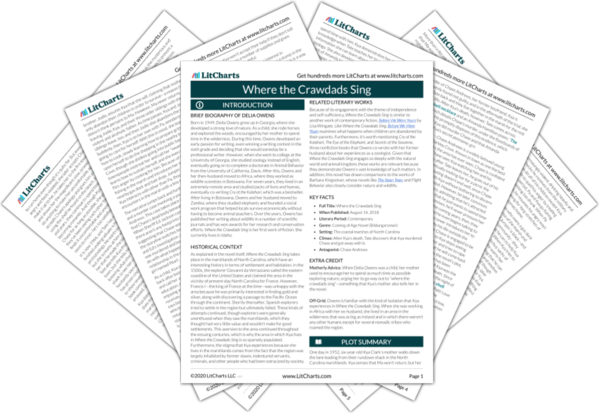LitCharts assigns a color and icon to each theme in Where the Crawdads Sing, which you can use to track the themes throughout the work.
Survival, Necessity, and Violence
Independence vs. Human Connection
Education, Coming of Age, and Adulthood
Prejudice, Intolerance, and Acceptance
